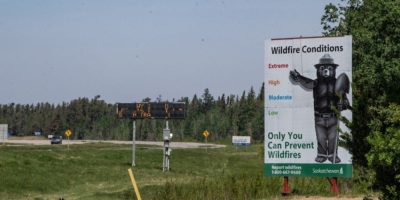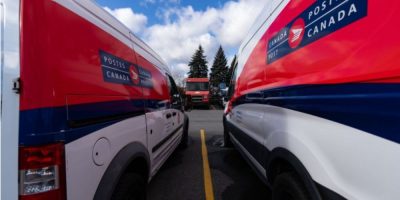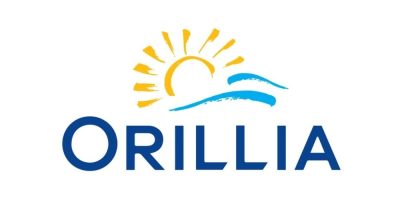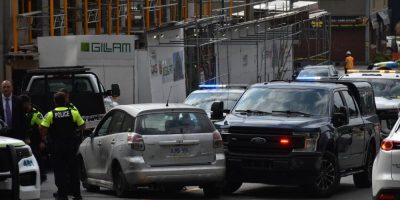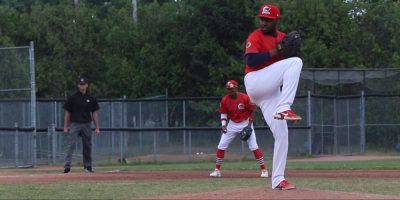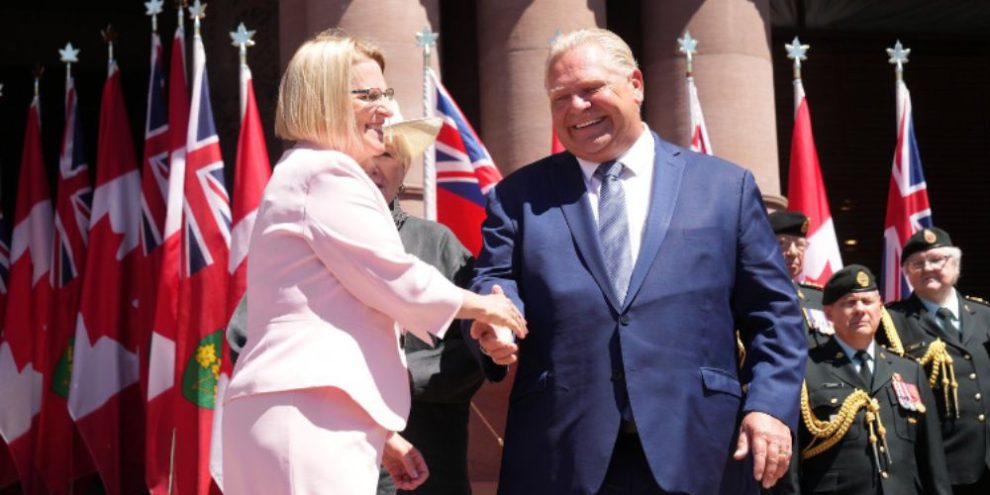
By David Fraser and Stephanie Taylor in Ottawa
Ontario Premier Doug Ford and former solicitor general Sylvia Jones are challenging a summons to appear as witnesses at the public inquiry examining the federal government’s use of the Emergencies Act.
Commission lawyers said the summons was issued Monday after both Ford and Jones, who is now the health minister, refused multiple requests to appear.
"It was our hope that Premier Ford and Minister Jones would agree to appear before the commission voluntarily," reads a letter sent Monday by commission lead lawyers Shantona Chaudhury and Jeffrey Leon.
"However, given that the repeated invitations were all declined, the commission has issued summons this day to Premier Ford and Minister Jones pursuant to section 4 of the Inquiries Act."
The letter was written in response to a request for Ford and Jones to appear made last week by three lawyers for parties involved in the inquiry, including the Canadian Civil Liberties Association, and a group of Ottawa residents affected by the convoy.
Chaudhury and Leon said in the letter that Ford and Jones had also "refused" multiple times to be interviewed privately by commission lawyers before the public hearings began.
Last week Ford told reporters at an unrelated event in Ottawa that he wasn't appearing at the inquiry because "I have not been asked."
In that same conversation on Oct. 17, Ford said the Ontario Provincial Police did an "incredible job" helping Ottawa police and RCMP clear protesters. He also said he stood "shoulder to shoulder" with Prime Minister Justin Trudeau throughout the convoy and the decision to invoke the Emergencies Act.
Andrew Kennedy, a spokesman for Ontario's Attorney General, said the province is going to challenge the summons in court.
"The government will be seeking a judicial review to set aside the summons and receive a stay under the grounds the summons are inconsistent with the members’ parliamentary privilege," Kennedy said in a written statement.
"We believe that questions about Ontario’s institutional response will be sufficiently addressed by the testimony from the two senior officials already selected by the commission."
Ontario deputy transport minister Ian Freeman, and deputy solicitor general Mario Di Tommaso, were interviewed by the commission already, and are scheduled to testify publicly, Monday's letter said.
But Chaudhury and Leon said information gathered by the commission, which includes 800 documents provided by the government of Ontario, has led them to believe Ford and Jones have evidence that would be relevant to the inquiry's mandate.
The commission has the authority to summon witnesses to testify. Ford’s office refuses to say why he declined the requests to be interviewed by the commission.
Interim leader of the Ontario Liberal Party John Fraser said in an emailed statement it was not surprising Ford and Jones were refusing to appear.
“By testifying, Doug Ford and Sylvia Jones will have an opportunity to explain to residents why they allowed the occupation to spiral out of control, and apologize for their inaction,” he said. “Challenging the summons is the wrong thing to do.”
Cara Zwibel, a lawyer for the Canadian Civil Liberties Association, said in an interview Monday that evidence from other witnesses had made clear Ford and Jones have "relevant information that would assist the commission in doing its work."
"This is sort of I guess, the commission's last resort is to issue a summons," said Zwibel. "I think from their perspective, they probably would have preferred, you know, voluntary participation. But it's pretty clear that these are individuals who have relevant information and evidence to give to the commission. And they need to be heard."
In a statement issued later, Zwibel said Ontario's decision to challenge the summons is "extremely disappointing."
"That Ontario's leadership is not only unwilling to assist but actively obstructing the commission's work is an abdication of its responsibility to the people of Ontario," she said. "We have seen this government resist transparency and accountability in many contexts, but this one is a particularly shocking example."
Paul Champ, a lawyer representing Ottawa residents in the inquiry, said in an emailed statement that the people of Ottawa deserve answers from Ford.
“Out of respect for what the residents and businesses of Ottawa endured, the Premier should respect this request from the Commission,” he said.
The public inquiry, which began earlier this month, is tasked with investigating the Trudeau government's decision to invoke the Emergencies Act in February as the “Freedom Convoy” paralyzed the national capital's downtown core.
This report by The Canadian Press was first published Oct. 24, 2022.
Banner image via The Canadian Press

